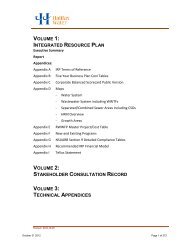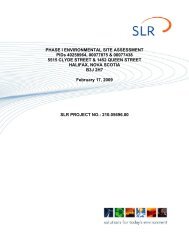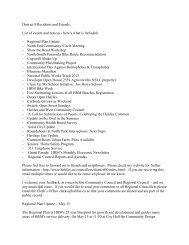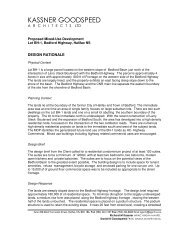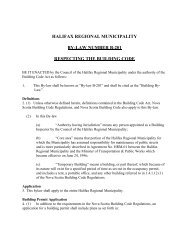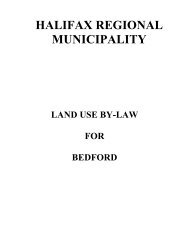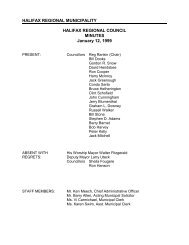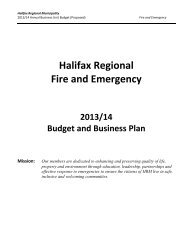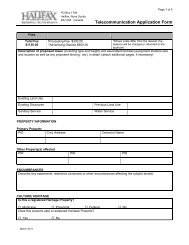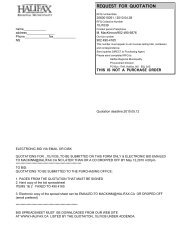Guidelines for the Preparation of Transportation Impact Studies - 8th ...
Guidelines for the Preparation of Transportation Impact Studies - 8th ...
Guidelines for the Preparation of Transportation Impact Studies - 8th ...
Create successful ePaper yourself
Turn your PDF publications into a flip-book with our unique Google optimized e-Paper software.
5.0 Estimation <strong>of</strong> Travel that will be Generated by <strong>the</strong><br />
Development Proposal and Development <strong>of</strong> a Travel Demand<br />
Management Plan<br />
Those elements <strong>of</strong> <strong>the</strong> TIS useful in estimating <strong>the</strong> travel demand that will be generated by <strong>the</strong><br />
proposed development or redevelopment are outlined in this section. The basic travel demand<br />
estimates will, optionally, be modified to account <strong>for</strong> travel demand management strategies to be<br />
implemented. Adjustments may also be appropriate to account <strong>for</strong> travel generated by existing<br />
development to be replaced, pass-by trips, and on-site synergies. Where <strong>the</strong> development or<br />
redevelopment proposal is to be implemented in phases, or where significant future changes to<br />
<strong>the</strong> transportation system or to overall travel patterns may affect site traffic patterns, additional<br />
travel demand scenarios should be developed and evaluated.<br />
5.1 Estimation <strong>of</strong> Basic Travel Demand<br />
5.1.1 Provide an estimate <strong>of</strong> travel demand that will be generated by <strong>the</strong> proposed development<br />
or redevelopment proposal, generally through application <strong>of</strong> <strong>the</strong> 'four-step' process (trip<br />
generation, trip distribution, modal split, and trip assignment) <strong>for</strong> <strong>the</strong> relevant trip types<br />
(work trips, visitor trips, shopping trips, courier/delivery vehicle trips, etc):<br />
5.1.2 Provide a summary <strong>of</strong> travel demand assumptions and methodologies used in trip<br />
generation, trip distribution, modal split, and trip assignment analyses. These should be<br />
consistent with standard or accepted parameters and techniques or based on surveys or<br />
o<strong>the</strong>r local knowledge. Sources should be documented. Departures from standard or<br />
accepted parameters or from survey results should be explained and justified. "S<strong>of</strong>t"<br />
parameters, where <strong>the</strong>re is uncertainty or a range <strong>of</strong> possible values, indicate a need <strong>for</strong><br />
sensitivity analysis unless a "most reasonable" case can be readily identified.<br />
Consultation with Halifax Regional Municipality staff may be useful when deciding<br />
on appropriate trip generation, trip distribution, modal split, auto occupancy, and<br />
peaking factors.<br />
5.1.3 Available trip generation methodologies include, from most to least preferred:<br />
• Local surveys or data, provided that conditions are similar to those <strong>for</strong> <strong>the</strong> proposed<br />
development or that differences are accounted <strong>for</strong>;<br />
• "First principles" calculations (eg. converting number <strong>of</strong> employees into trips through<br />
application <strong>of</strong> parameters such as vacancy rates, peaking factors, etc.);<br />
• Default parameters provided by Halifax Regional Municipality staff;<br />
• ITE trip generation rates provided that transferability issues are addressed.<br />
TISGUIDE8.WPD September 1, 2007 page 13






